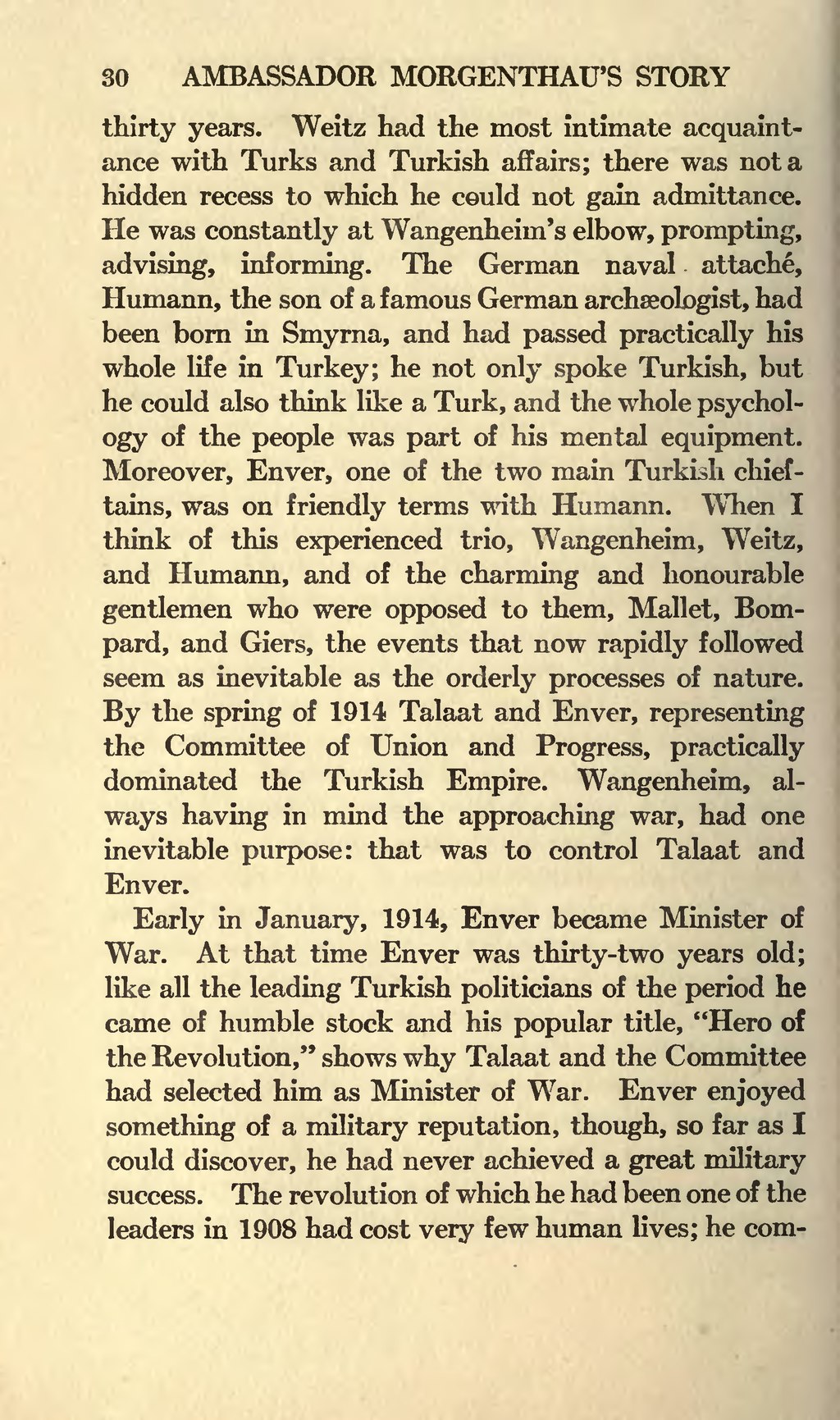thirty years. Weitz had the most intimate acquaintance with Turks and Turkish affairs; there was not a hidden recess to which he could not gain admittance. He was constantly at Wangenheim's elbow, prompting, advising, informing. The German naval attaché, Humann, the son of a famous German archaeologist, had been born in Smyrna, and had passed practically his whole life in Turkey; he not only spoke Turkish, but he could also think like a Turk, and the whole psychology of the people was part of his mental equipment. Moreover, Enver, one of the two main Turkish chieftains, was on friendly terms with Humann. When I think of this experienced trio, Wangenheim, Weitz, and Humann, and of the charming and honourable gentlemen who were opposed to them, Mallet, Bompard, and Giers, the events that now rapidly followed seem as inevitable as the orderly processes of nature. By the spring of 1914 Talaat and Enver, representing the Committee of Union and Progress, practically dominated the Turkish Empire. Wangenheim, always having in mind the approaching war, had one inevitable purpose: that was to control Talaat and Enver.
Early in January, 1914, Enver became Minister of War. At that time Enver was thirty-two years old; like all the leading Turkish politicians of the period he came of humble stock and his popular title, "Hero of the Revolution," shows why Talaat and the Committee had selected him as Minister of War. Enver enjoyed something of a military reputation, though, so far as I could discover, he had never achieved a great military success. The revolution of which he had been one of the leaders in 1908 had cost very few human lives; he commanded
